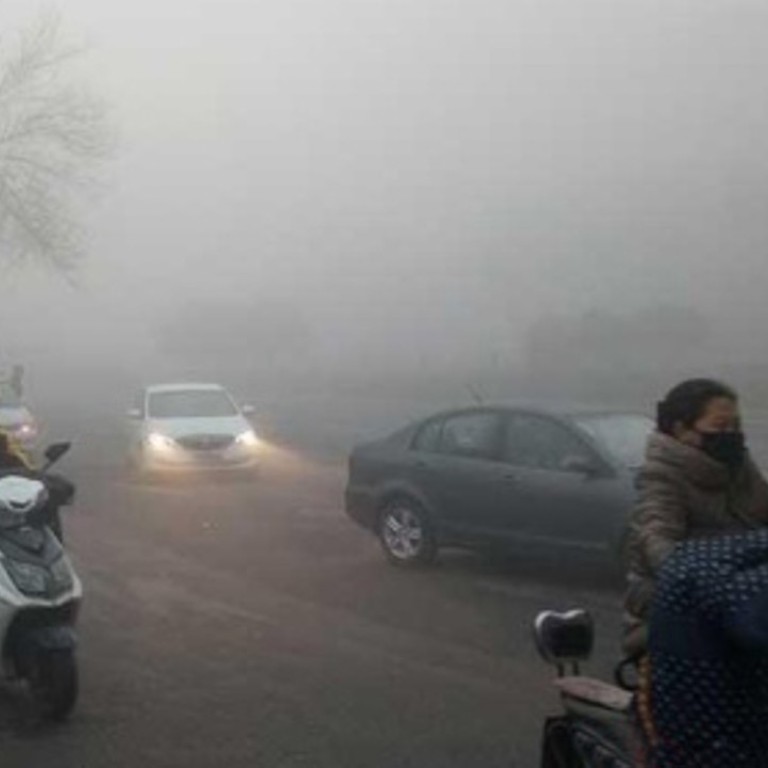
Smog blankets Beijing, northern China, causes road closures around the country
Visibility falls to 50 metres in some parts of the capital as air pollution soars despite efforts to ensure blue skies during party congress
China’s efforts to ensure blue skies for the Communist Party’s national congress failed as heavy smog blanketed Beijing throughout the week-long event and worsened as cadres headed back home.
An orange air pollution alert – the second highest on the four-tier scale – was issued for the capital on Friday morning.
The China Meteorological Administration said that in some parts of the capital, visibility was as low as 50 metres.
The administration said that as of 3pm in Beijing, the density of PM2.5 – particularly fine pollutants harmful to human health – was 186 micrograms per cubic metre, well above the World Health Organisation’s recommended safe level of 25.
Beijing-based website Aqicn.org said PM2.5 levels in the capital reached 277 micrograms per cubic metre in the mid-afternoon, making the air quality “very unhealthy”.
The authorities tried to clear the skies for the congress by introducing a raft of measures, including factory closures and traffic restrictions.
But the first day was marred by rain and followed by a yellow smog warning and then an orange alert on day three. Conditions then improved as the congress drew to an end on Tuesday, only to worsen again as President Xi Jinping introduced the top tier of the country’s leadership on Wednesday.
Weather forecasters said conditions were expected to improve over the weekend.
“With the cold air coming in [on Saturday] there will be an obvious improvement in Beijing’s air quality and visibility,” the administration said on its website, adding that “the blue sky and white clouds will return”.
Watch: China’s new breed of ‘smog refugees’ fleeing its big cities
In early September, the Ministry of Environmental Protection warned that the annual smog season had arrived earlier than in previous years. Beijing’s air pollution problems traditionally worsen with the arrival of the colder weather, as demand for heating soars across the city and coal-fired power plants ramp up their production.
China’s northeast was not the only region to be hit with smog on Friday. According to the meteorological office, air quality was so poor in some parts of Shanxi, Jiangsu, Shandong, Shaanxi, Henan, Sichuan and Chongqing, that several motorways had to be closed.
Xi, who tightened his grip on power at the congress, told the gathering that China would “continue implementing air pollution prevention measures and win the war on protecting the blue sky”.

